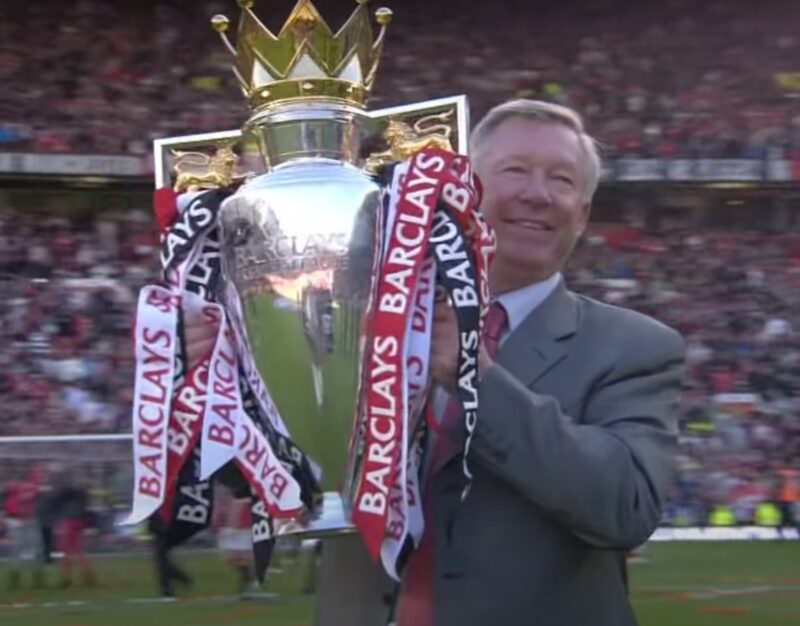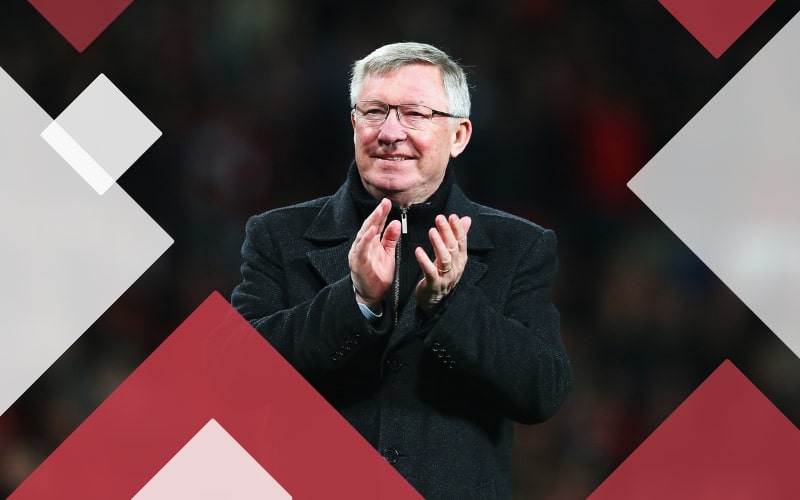In the annals of football history, few names resonate as profoundly as Sir Alex Ferguson. A titan of the sport, his influence extends far beyond the confines of the pitch. For 26 transformative years, he held the reins of Manchester United, one of the world’s most prestigious football clubs.
During his tenure, he didn’t just shape a team; he reshaped the entire landscape of football. His innovative approach to player development, his unique management style, his groundbreaking coaching techniques, and his keen business acumen have left an indelible mark on the sport we know and love today.
Ferguson was not just a manager; he was a visionary. He saw potential where others saw risk. He saw the future of football in the bright eyes of young, unproven players. He believed in their talent, nurtured their skills, and gave them the opportunity to shine on the world’s biggest stage. His faith in youth was not misplaced. Under his tutelage, raw talents transformed into football legends, their names forever etched in the annals of the sport.
His management style was a blend of discipline, motivation, and strategic brilliance. He knew how to get the best out of his players, instilling in them a winning mentality and a relentless desire to succeed. His teams were known for their teamwork, their discipline, and their never-say-die attitude. They played for each other, for the manager, and for the badge on their chest.
Emphasis on Youth Development
One of the key aspects of Ferguson’s approach to football was his strong emphasis on youth development. Recognizing the potential of young players, he dedicated significant resources to nurturing their talents and providing them with opportunities to succeed at the highest level. This was a departure from the traditional approach of relying heavily on experienced players.
Ferguson’s faith in youth was rewarded with the emergence of a generation of players who would go on to become some of the biggest stars in football. The likes of David Beckham, Ryan Giggs, and Paul Scholes, who were all products of Manchester United’s youth system, are testament to Ferguson’s vision. His success in this area has led to a shift in how clubs view youth development, with many now placing a greater emphasis on nurturing young talent.
Revolutionizing Team Management and Coaching
Ferguson’s impact on football extends beyond player development. He also revolutionized the way teams are managed and coached. He instilled a winning mentality in his players and emphasized the importance of teamwork and discipline. His approach was characterized by a relentless pursuit of success, and he was not afraid to make tough decisions in the best interests of the team.
In addition, Ferguson was a pioneer in the application of sports science in football. He recognized the potential of sports science to enhance player performance and fitness, and he integrated it into Manchester United’s training regime. This innovative approach gave Manchester United a competitive edge and has since been adopted by teams around the world.
Transforming Manchester United into a Global Brand

Perhaps Ferguson’s most significant achievement was transforming Manchester United into a global brand. Under his leadership, the club grew from a successful English team to one of the biggest and most prosperous clubs in the world. He understood the commercial potential of the club and leveraged its success on the pitch to attract lucrative sponsorship deals and drive retail sales.
Ferguson’s success in commercializing Manchester United laid the groundwork for the modern era of football, where commercial revenue is a crucial source of funding for clubs. His vision and business acumen have had a lasting impact on the sport, influencing how clubs are run today.
Impact on English Football

Ferguson’s influence also extended to English football as a whole. He led Manchester United to an unprecedented period of success, winning 13 Premier League titles, five FA Cups, and two UEFA Champions League titles. His success raised the profile of English football and set a new standard of excellence.
Moreover, Ferguson introduced new ideas and tactics that have since become commonplace in the sport. His emphasis on attacking football, his use of sports science, and his approach to player development have all had a significant impact on how football is played and coached in England.
Conclusion
In conclusion, Sir Alex Ferguson’s legacy in football is vast and multifaceted. He transformed the sport in numerous ways, from his emphasis on youth development and innovative coaching techniques to his role in making Manchester United a global brand and elevating the standard of English football. His influence continues to be felt today, and his achievements set a benchmark for success that future generations of managers will strive to emulate.

